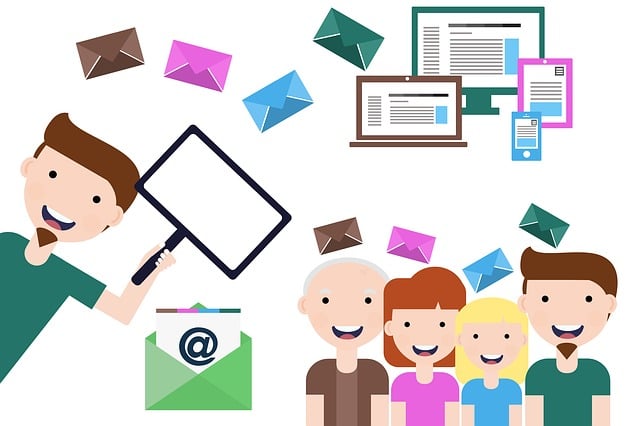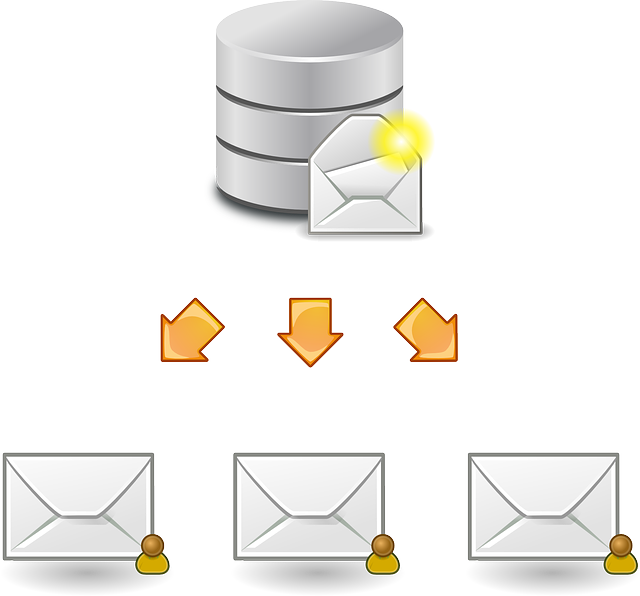Did you know that 73% of SaaS companies struggle with effective marketing? With the ever-growing demand for marketing automation, choosing the right platform becomes crucial for success.
In this article, we will compare Salesforce Marketing Cloud and Mailchimp, two popular marketing automation tools, to help you make an informed decision for your SaaS company.
Salesforce Marketing Cloud is a robust platform that offers a wide range of features and functionalities. With its advanced segmentation capabilities and personalized customer journeys, you can create targeted campaigns that resonate with your audience.
On the other hand, Mailchimp is known for its user-friendly interface and simplicity. It offers a variety of email marketing tools and automation features that can streamline your marketing efforts.
In addition to comparing features and functionality, we will also discuss pricing, integration capabilities, and customer support.
By the end of this article, you will have a clear understanding of which platform is better suited for your SaaS company’s marketing needs. So, let’s dive in and discover which tool will help you take your marketing to the next level!
Key Takeaways
- Salesforce Marketing Cloud offers advanced segmentation and personalized customer journeys, which can help SaaS companies improve their marketing effectiveness.
- Salesforce Marketing Cloud has a more complex interface with advanced features and customization options, while Mailchimp has a user-friendly interface.
- Mailchimp offers a free plan and affordable paid plans starting at $9.99 per month, while Salesforce Marketing Cloud’s pricing is available upon request and tends to be more expensive.
- Salesforce Marketing Cloud has integration capabilities with various systems and platforms, such as CRM systems, e-commerce platforms, customer data platforms, social media, and analytics, while Mailchimp offers integration options as well.
Features and Functionality of Salesforce Marketing Cloud
Salesforce Marketing Cloud offers a wide range of features and functionality to help SaaS companies effectively manage their marketing campaigns. One of the key benefits of using Salesforce Marketing Cloud is its ability to automate email campaigns. With its robust automation capabilities, SaaS companies can easily set up and execute personalized email campaigns, saving time and effort.
Additionally, Salesforce Marketing Cloud enables SaaS companies to create personalized customer journeys by leveraging its advanced segmentation and targeting capabilities. This allows companies to deliver relevant and tailored messages to their customers, ultimately driving engagement and conversions.
By using Salesforce Marketing Cloud, SaaS companies can optimize their marketing efforts and enhance their overall customer experience.
Moving on to the features and functionality of Mailchimp, it offers a different set of tools and capabilities.
Features and Functionality of Mailchimp
Explore the extensive features and functionality of Mailchimp that will revolutionize the way you manage your email marketing campaigns.
With Mailchimp, you can take advantage of powerful email automation capabilities that allow you to create personalized and targeted campaigns. You can easily set up automated workflows to send emails based on specific triggers, such as user actions or dates.
Additionally, Mailchimp offers robust A/B testing functionality, allowing you to experiment with different subject lines, content, and designs to optimize your campaigns for maximum engagement and conversion. By testing and analyzing the results, you can make data-driven decisions to continuously improve your email marketing strategy.
With all these features, Mailchimp provides a comprehensive solution for saas companies looking to enhance their email marketing efforts.
Moving on to the pricing comparison, let’s see how Mailchimp stacks up against Salesforce Marketing Cloud.
Pricing Comparison
Take a moment to compare the pricing of Mailchimp and Salesforce Marketing Cloud to see which option best fits your budget and email marketing needs. When conducting a competitive analysis, cost effectiveness is an important factor to consider. Here are four key points to consider when comparing the pricing of Mailchimp and Salesforce Marketing Cloud:
-
Mailchimp offers a range of pricing plans, including a free plan for up to 2,000 subscribers, as well as paid plans starting at $9.99 per month.
-
Salesforce Marketing Cloud, on the other hand, does not have a free plan and pricing is available upon request. It is known to be more expensive compared to Mailchimp.
-
Mailchimp’s pricing is based on the number of subscribers, whereas Salesforce Marketing Cloud’s pricing is based on the features and capabilities you require.
-
Additionally, Mailchimp offers a pay-as-you-go option for occasional senders, while Salesforce Marketing Cloud does not provide this flexibility.
Considering the pricing differences between the two platforms, it’s important to also evaluate their integration capabilities.
[Transition into the subsequent section about ‘integration capabilities’.]
Integration Capabilities
Now let’s delve into how well Mailchimp and Salesforce Marketing Cloud integrate with other platforms and tools to streamline your email marketing efforts. Integration capabilities and data management are crucial factors to consider when choosing a marketing automation platform for your SaaS company. Both Mailchimp and Salesforce Marketing Cloud offer a wide range of integration options to ensure seamless connectivity with various third-party applications and services. However, Salesforce Marketing Cloud’s integration capabilities are more extensive, allowing for deeper integration with CRM systems, e-commerce platforms, and customer data platforms. To illustrate this, consider the following comparison table:
| Integration Capabilities | Mailchimp | Salesforce Marketing Cloud |
|---|---|---|
| CRM Integration | Limited | Extensive |
| E-commerce Integration | Limited | Extensive |
| Customer Data Platforms | Limited | Extensive |
| Social Media Integration | Limited | Extensive |
| Analytics Integration | Limited | Extensive |
By leveraging Salesforce Marketing Cloud’s robust integration capabilities, you can maximize your data management and gain valuable insights across multiple channels. Moving forward, let’s explore how customer support and training play a crucial role in your decision-making process.
Customer Support and Training
When it comes to customer support and training, you’ll find that Mailchimp and Salesforce Marketing Cloud offer different levels of assistance, like comparing the helpfulness of a friendly guide versus a comprehensive manual. Here’s a breakdown of how they compare:
- Customer Onboarding Process: Mailchimp provides a user-friendly onboarding process, guiding users through the setup and configuration. They offer tutorials, videos, and a knowledge base to help users get started quickly.
On the other hand, Salesforce Marketing Cloud offers a more robust onboarding process with dedicated account managers and personalized training sessions, ensuring a smooth transition for users.
-
Customer Support: Mailchimp offers 24/7 email support and live chat assistance, allowing users to get help whenever they need it. Salesforce Marketing Cloud provides phone support in addition to email and chat, ensuring users can access immediate assistance for any issues they encounter.
-
Training Resources: Mailchimp offers a wide range of training resources, including webinars, guides, and an active community forum. Salesforce Marketing Cloud provides comprehensive training programs, including certifications and in-depth documentation, empowering users to become experts in utilizing the platform.
-
User Interface Comparison: Mailchimp has a user-friendly and intuitive interface, making it easy for users to navigate and complete tasks. Salesforce Marketing Cloud has a more complex interface, requiring a steeper learning curve but offering advanced features and customization options.
While Mailchimp provides excellent support and training resources, Salesforce Marketing Cloud goes the extra mile with personalized onboarding, dedicated support, and comprehensive training programs. Depending on the level of assistance and complexity desired, saas companies can choose the option that best suits their needs.
Frequently Asked Questions
Can Salesforce Marketing Cloud or Mailchimp be used for non-SaaS companies?
Both Salesforce Marketing Cloud and Mailchimp can be used by non-SaaS companies as alternative email marketing tools. However, it’s important to consider the pros and cons of each platform.
Salesforce Marketing Cloud offers advanced features and integration options, but it can be complex and expensive.
On the other hand, Mailchimp is user-friendly and cost-effective, but it may lack some advanced functionalities.
Consider your specific needs and budget when choosing between these two options for your non-SaaS business.
What are the system requirements for running Salesforce Marketing Cloud or Mailchimp?
To ensure smooth operation and optimal performance, both Salesforce Marketing Cloud and Mailchimp have specific system requirements. These requirements dictate the hardware, software, and network capabilities needed to run the platforms effectively.
When considering system requirements, scalability is a crucial factor. Both platforms need to accommodate your growing business and handle increasing data volumes without compromising performance.
Ensuring your infrastructure aligns with their requirements will help you leverage the full potential of Salesforce Marketing Cloud or Mailchimp.
Can Salesforce Marketing Cloud or Mailchimp be integrated with other CRM platforms?
Yes, both Salesforce Marketing Cloud and Mailchimp can be integrated with other CRM platforms, making them compatible with a wide range of systems. This allows you to streamline your customer data and marketing efforts across multiple platforms, enhancing efficiency and effectiveness.
By integrating these marketing solutions with your CRM platform, you can ensure seamless data synchronization, personalized customer experiences, and targeted marketing campaigns that drive results.
Is there a limit on the number of contacts or subscribers that can be managed in Salesforce Marketing Cloud or Mailchimp?
There are limits on the number of contacts or subscribers that can be managed in both Salesforce Marketing Cloud and Mailchimp.
Salesforce Marketing Cloud has different editions that offer varying contact management limits, ranging from 100,000 to millions of contacts.
Mailchimp, on the other hand, has tiered pricing plans that determine the maximum number of subscribers you can manage.
It’s important to consider your specific needs and growth projections when choosing a platform for contact or subscriber management.
Are there any restrictions on the types of content that can be sent through Salesforce Marketing Cloud or Mailchimp, such as promotional emails or transactional messages?
There are restrictions on the types of content that can be sent through Salesforce Marketing Cloud or Mailchimp. Both platforms have guidelines that prohibit the sending of spam, illegal content, or anything that violates their terms of service.
However, they do allow promotional emails and transactional messages as long as they comply with their policies.
When comparing pricing, Salesforce Marketing Cloud tends to be more expensive than Mailchimp, but it offers more advanced features and capabilities.
Conclusion
In conclusion, when comparing Salesforce Marketing Cloud and Mailchimp for SaaS companies, it’s evident that both platforms offer unique features and functionality.
While Salesforce Marketing Cloud provides a robust suite of tools for data-driven marketing automation, Mailchimp excels in its user-friendly interface and affordable pricing options.
Ultimately, the choice between the two depends on the specific needs and priorities of the SaaS company. By considering factors such as pricing, integration capabilities, and customer support, businesses can make an informed decision to drive their marketing strategies forward.








